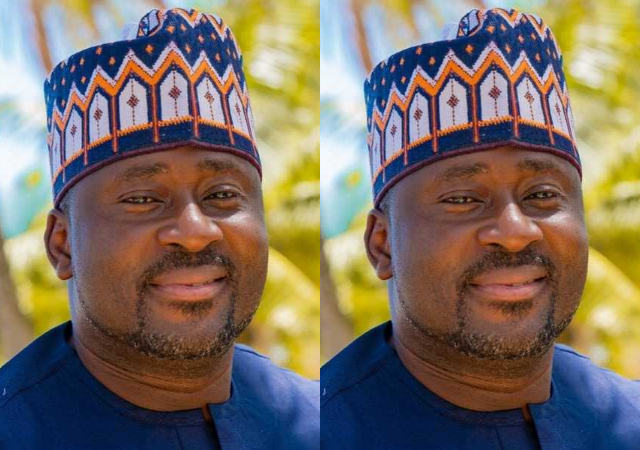Veteran Nollywood actor and lawmaker Desmond Elliot has finally addressed the recent allegations about his sexuality, while simultaneously raising important questions about the responsibility of digital media platforms in Nigeria’s evolving social landscape.
Speaking during a recent TVC interview, the 50-year-old Surulere constituency representative addressed the controversial claims with remarkable composure, dismissing them as baseless allegations unworthy of serious consideration. “Why would I respond to an allegation that neither increases nor decreases my life?” Elliot questioned, setting a tone of dignified dismissal that characterized his entire response to the situation.
The controversy emerged when a popular anonymous blogger included Elliot’s name in a list of public figures allegedly involved in homosexual activities. The publication, which claimed to possess “damning” evidence and witnesses, sparked widespread public discourse across social media platforms and traditional media outlets.
In his characteristic forthright manner, Elliot addressed the allegations head-on during the interview. “It is merely an opinion someone has formed. It is unnecessary for me to confirm or deny it as long as I am making a positive impact on others,” he stated, before directly refuting the claims with a clear declaration: “I am not gay.
However, what makes Elliot’s response particularly noteworthy is how he has transformed this personal challenge into a broader conversation about digital responsibility and the need for social media regulation in Nigeria. The lawmaker expressed serious concerns about the unchecked power wielded by anonymous bloggers, particularly highlighting platforms like Gistlover, which he believes have become vehicles for personal attacks and unsubstantiated rumors.
This situation has brought to the forefront the ongoing debate about the balance between free speech and responsible journalism in the digital age. Elliot’s call for government regulation of such platforms reflects a growing concern among public figures and ordinary citizens alike about the potential damage that unchecked digital platforms can inflict on personal and professional reputations.
The incident has also highlighted the unique challenges faced by public figures who must navigate both traditional political landscapes and the increasingly complex world of social media scrutiny. As someone who has successfully transitioned from entertainment to politics, Elliot’s experience provides a unique perspective on how public figures must deal with personal attacks while maintaining their professional dignity.
The controversy has sparked varied reactions across different segments of Nigerian society. While some view Elliot’s call for social media regulation as necessary for protecting individuals from baseless allegations, others express concern about potential implications for free speech and independent journalism.
This situation also throws light on the broader issue of how allegations of this nature can impact public figures, particularly in a society where such topics remain sensitive. The swift response from many individuals named in the controversial list underscores the serious implications such allegations can have on personal and professional lives.
Elliot’s approach to handling these allegations offers an interesting case study in crisis management for public figures. Rather than engaging in a heated exchange or launching legal threats, his measured response and focus on broader societal implications demonstrates a mature approach to handling personal attacks in the public sphere.
As this situation continues to evolve, it raises important questions about the responsibility of digital platforms, the rights of public figures, and the need for balanced regulation in Nigeria’s growing digital space. The incident may serve as a catalyst for more serious discussions about how to protect individuals from unsubstantiated allegations while preserving the important role of independent media in society.
The controversy surrounding Elliot’s situation has highlighted the complex intersection of personal privacy, public life, and digital media in contemporary Nigerian society. As the country continues to grapple with these issues, the outcome of this situation and any resulting policy changes could have far-reaching implications for how similar cases are handled in the future.



